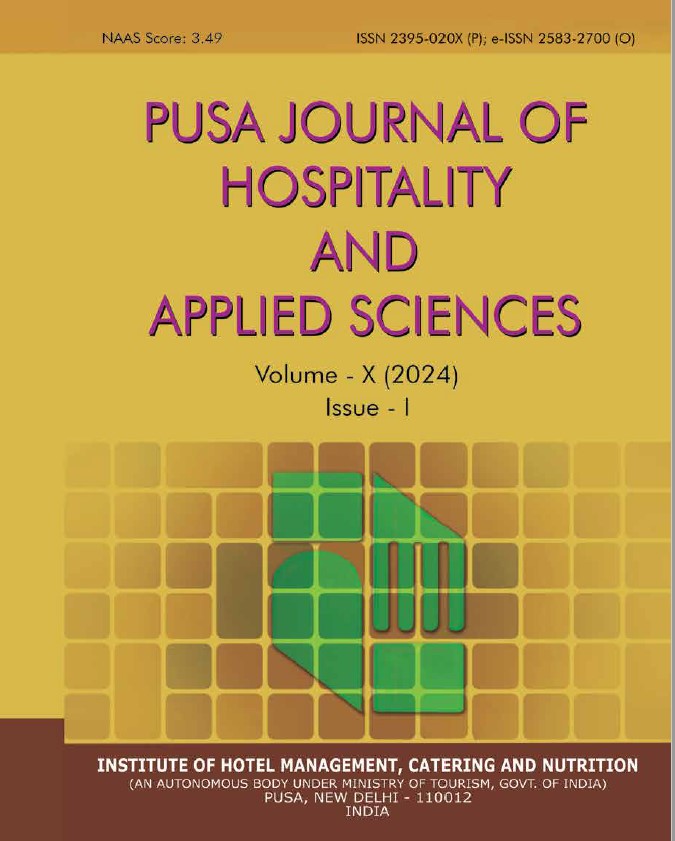Improving Nutrition And Delivery Practices Through Training And Capacity Building In The Largest School Meal Programme
Keywords:
Mid-Day Meal, Human Resource Development, Standard Operating Procedures, Community Participation, Capacity BuildingAbstract
Background: Having achieved delivery of cooked food in all states and reaching out to children (6-14 yrs) through centralized and decentralized delivery model Mid Day Meal scheme has not been able to achieve its own mandate of providing nutrition. Many studies have attributed gaps in delivery to lack of awareness and trained human resource in preparation of cooked meals.
Objectives: A pilot study was undertaken in two blocks of Faizabad district with an objective of providing interventions in area of human resource development and community participation. Methodology: Through baseline survey (n= 70 schools) in two blocks, issues in delivery were studied and provided specific interventions. Results: Baseline survey established the fact that quantities consumed by the child do not provide prescribed nutrition. Menu was standardized for amounts and standard Operating Procedures (SOPs). Pictorial training manual was developed to train master trainers as well as cooks. Location specific training using local idiom was used and campaign was conducted to enhance community participation in 45 villages. Conclusion: Accomplishing comprehensive improvement without proper human resource policy is a challenge especially in rural areas. Developed Standard Operating Procedures (SOPs), awareness and capacity building through campaigns and training had positive impact on delivery of nutrition.
References
Afridi, F. (2010). Child welfare programs and child nutrition: Evidence from a mandated school meal program in India. Journal of Development Economics, 92 (2).
Anuradha, D., Noronha, C., & Samson, M. (2007). Towards more benefits from Delhi’s midday mealscheme. Collaborative Research and Dissemination (CORD). New Delhi. 3. Deodhar, Y. S. (2010). Evaluation of Mid Day Meal Scheme. Journal of Indian School of Political Economy, 22(1-4), 33-49.
Fifth Joint Review Commission Reports. Department of School Education and Literacy. Government of India. 2013-2014. Retrieved from http://www.mdm.nic.in
Jain, J. & Shah, M. (2005). Antyodaya Anna Yojana and Mid-day Meals in MP. Economic and Political Weekly, 40(48).
Khera, R. (2006). Mid-Day Meals in Primary Schools: Achievements and Challenges. Economic and Political weekly, 41(46).
Nambiar, V. & Desai, R. (2008). A case study report on Evaluation of MDM in 3 rural Vadodara. A report submitted to the Commissioner, Gujarat MDM.
Nambiar, V. & Desai, R. (2012). Positive and Negative Deviant Beahaviours affecting the Mid Day Meal Programme (MDMP) in government aided primary schools of an urban Indian city: Causes, consequences and solutions. Indian Journal of Biomedical research and analysis, 3(3).
NP-NSPE. Guidelines for Central Assistance under the National Programme for Nutritional Support to Primary. Department of School Education and Literacy; Government of India.2006. Retrieved from http://www.mdm.nic.in
Planning Commission. Performance Evaluation of Cooked Mid Day Meal, Programme Evaluation Organization, PEO Report No. 202, Planning Commission, GOI. 2010
Robinson, N. (2007). Visiting Madhya Pradesh: A Report on the Implementation of The Mid-Day Meal Scheme in Four districts of Madhya Pradesh. Retrieved from http://www.righttofoodindia. org/data/nmbs_mp.pdf.
Verma, J.S. , & Biswas, J. (2008). Tackling child under nutrition in India: Governance challenges need more attention. IDS Bulletin, 40( 4): pp(111-121).




